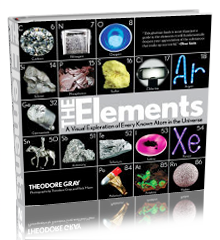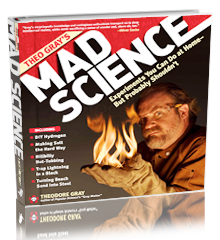Antimony Goblets. | |||
| Sample Image | Spin Video | QuickTimeVR Rotation | |||
| Antimony Goblets. I'm not sure about these goblets. They are stamped "E.P. ANTIMONY" and "JAPAN" on the bottom, so the seller was certainly justified in selling them as "Antimony Goblets". Reader Paul Roberts suggests that maybe "E.P." stands for Electro Plated, which seems like a good guess. One of the goblets has a piece broken off its lip, so I scraped the plating off one side and analyzed the base metal by x-ray fluorescence spectroscopy at the Center for Microanalysis of Materials, University of Illinois (partially supported by the U.S. Department of Energy under grant DEFG02-91-ER45439). The result is a complex alloy with the following components: 49% lead 23% antimony 10% tin 17% silver 1% copper The silver part is probably either from incomplete scraping of what is obviously silver plate (based on how it tarnishes), or the machine is seeing some of the back side of the sample: I doubt very much that they would have wasted silver in the base metal. So, there really is a good bit of antimony, but it's not the major component of the alloy. There are a whole lot of different alloys containing various mixtures of tin, antimony, lead, silver, and copper. They have names like "German silver", "Pewter", etc. Why some company decided to name this one after its antimony content I'm not sure: Maybe they just really didn't want to call it lead. I suspect that my other "antimony" objects are made of similar sorts of alloys with varying amounts of antimony depending on what mine was close to the factory that made them. Source: eBay seller cnull Contributor: Theodore Gray Acquired: 16 October, 2002 Price: $1.04 Size: 7" Purity: 23% | |||
|

